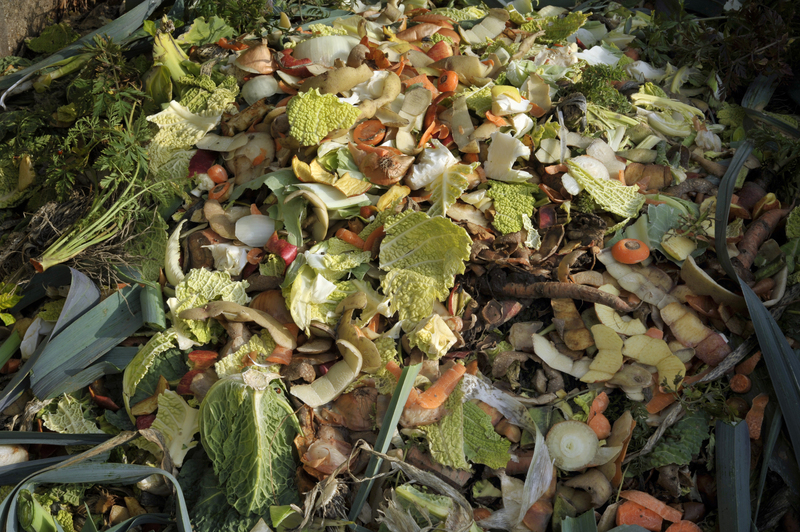Overcoming Plastic Challenges: A Guide for Change
Plastic has revolutionized the modern world, offering unmatched convenience, affordability, and durability. However, these same attributes have led to immense plastic waste challenges that threaten our environment and future. Overcoming plastic challenges requires a comprehensive, collaborative approach. In this guide, we'll explore the scope of the plastic problem, practical solutions, and actionable steps for individuals, communities, and industries.
Understanding the Plastic Problem
Plastic is ubiquitous--used in packaging, electronics, clothing, vehicles, and countless everyday items. Since the mid-20th century, plastic production has accelerated, creating a global plastic crisis that demands urgent attention.
The Data Behind Plastic Pollution
- Globally, over 400 million tonnes of plastic are produced each year.
- Only 9% of plastic waste is recycled, with the remainder ending up in landfills, incinerators, or natural environments.
- By 2050, estimates predict that plastic in oceans may outnumber fish by weight, a warning sign for both marine and human health.
Types of Plastic Waste
Plastic waste comes in many forms:
- Single-use plastics: Bags, straws, cutlery, packaging, water bottles
- Microplastics: Tiny fragments shed from synthetic fabrics, tires, and larger plastics
- Industrial plastics: Used in manufacturing, construction, and agriculture
Each type presents unique plastic waste challenges for collection, recycling, and management.

Why Is Plastic So Challenging to Overcome?
The same properties that make plastic valuable--its durability and flexibility--also make it a persistent pollutant. Here's why overcoming plastic challenges isn't simple:
- Longevity: Most plastics do not biodegrade, taking hundreds (or thousands) of years to break down.
- Fragmentation: Plastics break into microplastics, infiltrating water, soil, and air.
- Complex recycling: Many plastics contain additives or are blended with other materials, making recycling difficult.
- Global trade: Uneven waste management infrastructure worldwide exacerbates the problem.
Strategies for Overcoming Plastic Waste Challenges
Confronting the plastic crisis requires a multi-pronged approach, combining technological innovation, systemic change, and individual action. Below, we outline the main solutions and how you can contribute to overcoming plastic problems at various levels.
1. Reduce: The First Step Toward Change
Reducing plastic consumption is the most effective way to minimize waste. Consider these actionable reductions:
- Choose reusable bags, bottles, and containers
- Avoid excess packaging by buying in bulk or selecting loose produce
- Refuse single-use plastics like straws, cutlery, or plastic-wrapped items
- Support retailers and companies with sustainable packaging commitments
Pro tip: Track your weekly plastic usage for a month--this simple exercise can highlight easy areas for reduction.
2. Reuse: Extending Plastic Lifespan
Where avoiding plastic isn't possible, focus on reusing items. Ideas include:
- Repurpose jars and containers for storage
- Use durable shopping bags and water bottles
- Share or donate old toys, furniture, and items, giving them a second life
3. Recycle: Closing the Loop
Recycling plastic is crucial, though it's often misunderstood. To maximize effectiveness:
- Learn what plastics your local recycling program accepts (not all numbers are recyclable everywhere!)
- Rinse and clean plastics before recycling to prevent contamination
- Don't "wishcycle"--placing non-recyclable items in recycling bins can do more harm than good
- Support products and packaging made from recycled plastics
Did you know? Downcycling often occurs--most plastics are recycled a single time into lower-value products. Innovating toward closed-loop recycling is vital for real change.
4. Innovate: New Materials and Processes
Innovation drives solutions to major plastic challenges. Exciting advances include:
- Bioplastics: Derived from plants or algae, these can be compostable or have a smaller carbon footprint
- Enzyme-based recycling: New enzymes can break plastics down into reusable components
- Advanced sorting technology: AI and robotics help separate plastics more effectively for recycling
- Plastic alternatives: Paper, glass, and metal are making a comeback in packaging and products
Startups and established companies alike are racing to address plastic use issues with creativity and science.
5. Advocate: Policy and Systemic Change
Meaningful, lasting change involves more than personal action. Adding your voice can accelerate systemic solutions:
- Support bans and taxes on single-use plastics in your region
- Advocate for Extended Producer Responsibility (EPR), holding manufacturers accountable for plastic life cycles
- Stay informed: Follow news on plastic policy and public comment opportunities
- Participate in cleanups and educational campaigns
Together, citizens can drive legislation and industry reform needed for overcoming plastic waste challenges on a large scale.
The Role of Businesses and Industries
Companies are uniquely positioned to address plastic challenges in manufacturing, distribution, and design. Forward-thinking businesses can:
- Redesign products for recyclability and modularity
- Switch to sustainable packaging materials
- Take part in circular economy initiatives--return and reuse schemes, for example
- Report transparently on plastic footprints and progress
Collaborating with NGOs and governments, industry can lead the way in developing scalable, innovative solutions to our plastic problems.
Community Solutions: Working Together for Plastic Change
Communities play an important role in collectively overcoming plastic issues. Here are some inspiring examples and strategies:
- Beach and river clean-ups: Removing debris before it enters oceans
- Educational programs: Teaching children and adults about plastic-free lifestyles
- Local bans: Municipal action on plastic bags or packaging
- Creative upcycling--art installations, building materials, or community gardens made from plastic waste
Tip: Get involved with local zero-waste organizations or start a community project--small changes add up!
The Global Movement Against Plastic Pollution
The fight against plastic pollution is truly worldwide. UN agreements, cross-border collaborations, and non-profit advocacy all help amplify impact:
- In 2022, countries began negotiations for a Global Plastics Treaty targeting plastic waste across the entire lifecycle.
- Major cities have committed to zero-waste goals, inspiring others to follow suit.
- Grassroots efforts, like Plastic Free July, invite millions to reduce single-use plastics each year.
The message is clear: Overcoming plastic challenges is possible when nations, communities, businesses, and individuals work in concert.
Frequently Asked Questions About Overcoming Plastic Challenges
Can we live without plastic?
Completely eliminating plastic from daily life is unrealistic in the near term, as plastics are vital in healthcare, transportation, and critical infrastructure. The goal is to use less plastic and eliminate unnecessary single-use plastics while investing in alternatives and better recycling methods.
What are microplastics and why are they dangerous?
Microplastics are tiny particles (less than 5mm) that result from the breakdown of larger plastic items or are intentionally manufactured for exfoliants or industrial purposes. They're found in water, air, and food--but cannot be easily removed from the environment. Their impact on health is still being studied, but they're known to be ingested by marine and terrestrial animals, and potentially humans.
Is biodegradable plastic the answer?
Biodegradable and compostable plastics offer promise, but must be managed properly. Many require specific industrial composting facilities and do not break down in home compost or the natural environment. Their effectiveness depends highly on infrastructure and clear labeling.
Are there countries successfully overcoming plastic challenges?
Some countries set inspiring examples:
- Germany: High recycling rates and bottle deposit schemes recover and reuse most beverage plastics.
- Kenya: One of the strictest bans on plastic bags, drastically reducing litter.
- Japan: Advanced sorting systems and community participation achieve low landfill rates.

How You Can Help Overcome Plastic Challenges Today
Every action makes a difference. Start with these steps:
- Audit your plastic use and set reduction goals
- Switch to reusable shopping bags, bottles, and utensils
- Choose products with minimal or sustainable packaging
- Get involved in local environmental events or support policy change
- Be vocal--share your successes and tips with friends and family
Change begins with awareness, but it must go beyond intention. Overcoming plastic challenges is a journey every individual, company, and community can walk together.
Conclusion: A Shared Responsibility for the Future
Plastic waste challenges may be vast, but they're not insurmountable. By reducing, reusing, recycling, innovating, and advocating for systemic change, we can create a healthier, sustainable world. The responsibility belongs to all of us--but so do the rewards. Your choices today shape the environment of tomorrow.
Let's overcome plastic challenges, together.